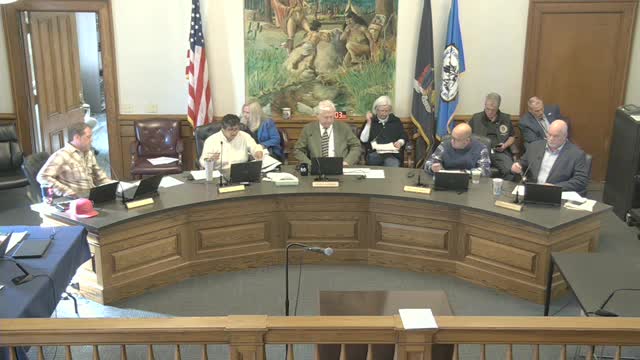Saratoga Springs officials eye paid-parking changes, transfer tax and fees to bolster DPW as costs surge
Get AI-powered insights, summaries, and transcripts
Subscribe
Summary
At an Oct. budget workshop, Saratoga Springs City officials said rapidly rising personnel and contract costs are squeezing the Department of Public Works budget and proposed extending paid parking, establishing a property transfer tax to seed a community preservation fund, and charging for electric vehicle (EV) charging to generate revenue for DPW.
At an Oct. budget workshop, Saratoga Springs City officials said rapidly rising personnel and contract costs are squeezing the Department of Public Works budget and proposed extending paid parking, establishing a property transfer tax to seed a community preservation fund, and charging for electric vehicle (EV) charging to generate revenue for DPW.
Meeting chair said the city has seen sharp increases in employee benefits and equipment costs, noting “health insurance have gone up about 26%. Retirement has gone up 89%, liability insurance has gone up 188%.” The chair added that a vehicle example illustrates broad price inflation: an ambulance that cost about $180,000 when ordered in 2019 now costs about $587,000.
Those increases are complicating a budget where salaries and benefits make up the bulk of DPW-related spending. The chair said DPW and DPW-recreation combined appear as a 13.17 figure in the comp budget, with roughly $1,900,000 for health insurance, $850,000 for retirement and about $6,300,000 for salaries, or roughly $9.2 million of those lines.
Mike Reach, Public Works, told the council the city’s expenses have risen across recent budget cycles and pointed to operational pressures that require sustained funding: “the city has grown in expenses during these last 4 budget cycles by about $8,400,000,” Reach said. He warned that DPW overtime funding is vulnerable to storm costs: one three-day storm in February generated roughly $33,000 in overtime, and DPW overtime lines budgeted for 2026 could be exhausted quickly by a single major event.
To raise DPW-dedicated revenue, meeting leaders and DPW staff outlined options: - Extend paid parking to match the outdoor-dining season (proposed April 1–Nov. 1). Officials estimated the extension — which would add about 107 paid days — could generate an additional roughly $170,000 annually, and said that revenue would be dedicated to DPW. The city reported paid-parking revenue of about $439,886 in 2025 (101 days) and about $257,000 in an earlier year when paid parking covered 77 days. - Create a community preservation fund financed by a one-time transfer tax on property sales (presenters described a 1% or 0.5% transfer tax). The chair described the fund as a one-time charge on property transfers that “doesn’t impact our residents” as a recurring property tax and said those funds could be used for DPW maintenance, trails and climate-related projects. - Start charging for EV charging at city chargers (staff note: current comp budget does not bill electricity for charging). Reach said the city should “at least be charging” to recoup electricity costs rather than “paying for people to freely charge their vehicles.”
Reach and staff also flagged rising contractor and parts costs as routine budget pressure points: transfer-station hauling rose about 28% in one year (from roughly $70,000 to $90,000), landfill-monitoring professional services rose about 10%, and snow-plow parts increased 12%–22% year to year. Vehicle repair costs on aging pickup trucks can range widely — staff referenced $7,000–$15,000 repairs and said heavy-equipment repairs can be substantially higher.
Budget offsets already discussed by the council and staff include citywide cuts to part-time positions and overtime and reductions to repair/maintenance and supply lines. Reach said some reparations to the comp budget remain unfunded — for example, several capital reserve and event-related expense lines (flowers, facility maintenance for leased buildings, some rental staffing) are set to zero in the comp budget and may require targeted restoration.
On reserves, staff reported the city’s unrestricted unassigned fund balance was $8,700,000 on Oct. 14 and said the city’s fund-balance policy sets a floor of 10% and a cap of 25%. The administration estimated the unassigned fund balance could be about 10.5% by Dec. 31 under current projections; staff also noted that 2025 used roughly $3,500,000 of fund balance to balance the adopted budget. The comprehensive budget presented to council included $1,053,500 drawn from unassigned fund balance and $500,000 from restricted reserves, and staff also mentioned a planned $500,000 use of the debt-service reserve in the comp figures.
Council members and staff agreed to continue working with finance to refine line-item changes and revenue options before the November budget adoption, and staff said they would supply detailed reserve and fund-balance figures by email or in a follow-up workshop.
The council did not take formal votes on DPW budget items during the workshop; the meeting concluded with a voice vote to adjourn.
